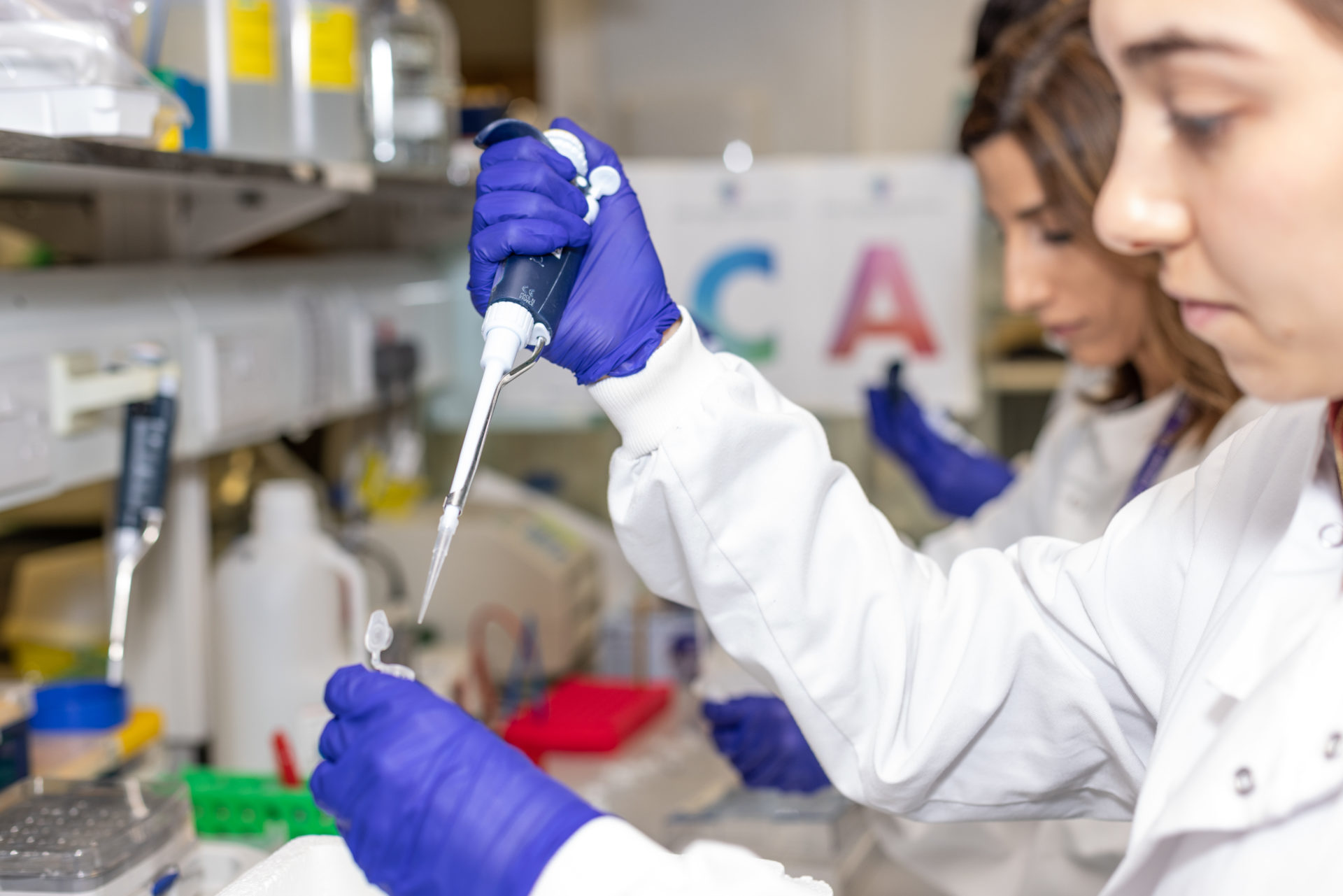Webinar: Launching our Early Detection Grants
If you were unable to attend our webinar on Tuesday 28th March, you can now watch the recording to find out more about our Early Detection Grants from our Head of Research, Chris Macdonald.


Early detection saves lives. Currently 80% of people with pancreatic cancer are diagnosed too late for potentially life-saving treatment. We desperately need to make progress towards the development of new tools and techniques to help detect and diagnose pancreatic cancer at an earlier stage.
Our Early Detection Grant scheme is designed to support the research community to deliver significant projects that ultimately aim to transform how pancreatic cancer is detected and diagnosed at its earliest possible stage. This can include approaches to the identification, stratification, and referral of very early symptomatic patients, through to innovative research to uncover the earliest possible initiation and development processes of cancer that can be exploited in its asymptomatic detection.
These grants will provide successful applicants with up to £500,000 for a maximum of 4 years.
The review process will consist of three phases; an expression of interest, a full application, and an interview.
If you were unable to attend our webinar on Tuesday 28th March, you can now watch the recording to find out more about our Early Detection Grants from our Head of Research, Chris Macdonald.
Chair and Co-Chair of the Early Detection Grants Review Panel:
Technical Panel Members:
Lay Panel Members:
Eligible applicants include clinical and non-clinical researchers, with the principal investigator based in the UK. Multi-institutional proposals are welcome. Some key criteria include:
Maximum size of award: £500,000
Maximum duration: 4 years
Please note: Dates later in the year may be subject to minor revisions. Confirmed dates will be communicated to applicants as soon as possible.
All applicants are strongly encouraged to refer to the Guidance for Applicants and FAQs before completing their application.
All potential applicants and their Host Institutions should ensure that they have also reviewed our Terms and Conditions, which set out the standard terms applicable to Early Detection Grants funded by Pancreatic Cancer UK.
The lead applicant and proposed project must be based in the UK, at a recognised not-for-profit research organisation, such as university, hospital, or similar institution. The application should be submitted by one lead applicant with a strong track record in conducting research who will be the person responsible for the direction of the team. We will only accept one application from each lead applicant. Applications from early/mid-career researchers as lead applicants or co-investigators responsible for the delivery of the work are welcome but must be supported by a supervisor deemed an expert in their field.
Applicants should be aware that their proposals will also be reviewed by people with lived experience of pancreatic cancer and are therefore strongly encouraged to demonstrate how they have already/intend to involve people with lived experience in the development and delivery of their work. At Pancreatic Cancer UK, we have a fantastic Research Involvement Network (RIN) made up of over 500 individuals that have been affected by pancreatic cancer including patients, carers, loved ones and survivors. They give valuable insight and help to ensure that research is centred around the needs of patients. If you would like members of RIN to help shape your application you can find out more about how to do this here. Please get in touch with the Research Team as soon as possible if you would like to discuss this further or if you have any questions.
To apply, please submit your completed Expression of Interest form to research@pancreaticcancer.org.uk.
If you have any questions or queries about the application process, we are more than happy to help or advise you. So please don’t hesitate to contact us on research@pancreaticcancer.org.uk.